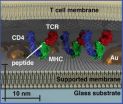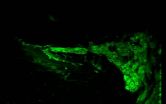(Press-News.org) Better-educated people appear to be significantly more likely to recover from a moderate to severe traumatic brain injury (TBI), suggesting that a brain's "cognitive reserve" may play a role in helping people get back to their previous lives, new Johns Hopkins research shows.
The researchers, reporting in the journal Neurology, found that those with the equivalent of at least a college education are seven times more likely than those who didn't finish high school to be disability-free one year after a TBI serious enough to warrant inpatient time in a hospital and rehabilitation facility.
The findings, while new among TBI investigators, mirror those in Alzheimer's disease research, in which higher educational attainment — believed to be an indicator of a more active, or more effective, use of the brain's "muscles" and therefore its cognitive reserve — has been linked to slower progression of dementia.
"After this type of brain injury, some patients experience lifelong disability, while others with very similar damage achieve a full recovery," says study leader Eric B. Schneider, Ph.D., an epidemiologist at the Johns Hopkins University School of Medicine's Center for Surgical Trials and Outcomes Research. "Our work suggests that cognitive reserve ¬— the brain's ability to be resilient in the face of insult or injury — could account for the difference."
Schneider conducted the research in conjunction with Robert D. Stevens. M.D., a neuro-intensive care physician with Johns Hopkins' Department of Anesthesiology and Critical Care Medicine.
For the study, the researchers studied 769 patients enrolled in the TBI Model Systems database, an ongoing multi-center cohort of patients funded by the National Institute on Disability and Rehabilitation Research. The patients had been hospitalized with a moderate to severe TBI and subsequently admitted to a rehabilitation facility.
Of the 769 patients, 219 — or 27.8 percent — were free of any detectable disability one year after their injury. Twenty-three patients who didn't complete high school — 9.7 percent of those at that education level — recovered, while 136 patients with between 12 and 15 years of schooling — 30.8 percent of those at that educational level — did. Nearly 40 percent of patients — 76 of the 194 — who had 16 or more years of education fully recovered.
Schneider says researchers don't currently understand the biological mechanisms that might account for the link between years of schooling and improved recovery.
"People with increased cognitive reserve capabilities may actually heal in a different way that allows them to return to their pre–injury function and/or they may be able to better adapt and form new pathways in their brains to compensate for the injury," Schneider says. "Further studies are needed to not only find out, but also to use that knowledge to help people with less cognitive reserve."
Meanwhile, he says, "What we learned may point to the potential value of continuing to educate yourself and engage in cognitively intensive activities. Just as we try to keep our bodies strong in order to help us recover when we are ill, we need to keep the brain in the best shape it can be."
Adds Stevens: "Understanding the underpinnings of cognitive reserve in terms of brain biology could generate ideas on how to enhance recovery from brain injury."
INFORMATION:
Other Johns Hopkins researchers contributing to the study include Vanessa Raymont, M.B.Ch.B., M.Sc., M.R.C.Psych.; Josh Duckworth, M.D.; Robert G. Kowalski, M.B.B.Ch., M.S.; David T. Efron, M.D.; Xuan Hui, M.D., Sc.M.; Shalini Selvarajah, M.D., M.P.H.; and Hali L. Hambridge, Sc.M..
Schneider has pending patents on a treatment for acute central nervous system injury, which are not related to the content of this manuscript. Stevens has received funding from the Defense Advanced Research Projects Agency, the Department of Defense and the Johns Hopkins Brain Sciences Institute.
Johns Hopkins Medicine (JHM), headquartered in Baltimore, Maryland, is a $6.7 billion integrated global health enterprise and one of the leading health care systems in the United States. JHM unites physicians and scientists of the Johns Hopkins University School of Medicine with the organizations, health professionals and facilities of The Johns Hopkins Hospital and Health System. JHM's vision, "Together, we will deliver the promise of medicine," is supported by its mission to improve the health of the community and the world by setting the standard of excellence in medical education, research and clinical care. Diverse and inclusive, JHM educates medical students, scientists, health care professionals and the public; conducts biomedical research; and provides patient-centered medicine to prevent, diagnose and treat human illness. JHM operates six academic and community hospitals, four suburban health care and surgery centers, and more than 30 primary health care outpatient sites. The Johns Hopkins Hospital, opened in 1889, was ranked number one in the nation for 21 years in a row by U.S. News & World Report.
Johns Hopkins Medicine
Media Relations and Public Affairs
Media Contacts:
Lauren Nelson
410-955-8725; lnelso35@jhmi.edu
Helen Jones
410-502-9422; hjones49@jhmi.edu END
Higher education associated with better recovery from traumatic brain injury
2014-04-23
ELSE PRESS RELEASES FROM THIS DATE:
Rural microbes could boost city dwellers' health
2014-04-23
The greater prevalence of asthma, allergies and other chronic inflammatory disorders among people of lower socioeconomic status might be due in part to their reduced exposure to the microbes that thrive in rural environments, according to a new scientific paper.
The article, published in the journal Clinical & Experimental Immunology, argues that people living in urban centers who have less access to green spaces may be more apt to have chronic inflammation, a condition caused by immune system dysfunction.
When our immune systems are working properly, they trigger inflammation ...
Princeton release: Not just the poor live hand-to-mouth
2014-04-23
When the economy hits the skids, government stimulus checks to the poor sometimes follow.
Stimulus programs — such as those in 2001, 2008 and 2009 — are designed to boost the economy quickly by getting cash into the hands of people likely to turn around and spend it.
But sending cash to just the very poor may not be the right approach, according to researchers from Princeton University and New York University who analyzed information on the finances of U.S. households from 1989 to 2010.
"What we found is that households that have the lowest liquid wealth — where ...
NASA satellites show drought may take toll on Congo rainforest
2014-04-23
A new analysis of NASA satellite data shows Africa's Congo rainforest, the second-largest tropical rainforest in the world, has undergone a large-scale decline in greenness over the past decade.
The study, led by Liming Zhou of University at Albany, State University of New York, shows between 2000 and 2012 the decline affected an increasing amount of forest area and intensified. The research, published Wednesday in Nature, is one of the most comprehensive observational studies to explore the effects of long-term drought on the Congo rainforest using several independent ...
WSU innovation improves drowsy driver detection
2014-04-23
SPOKANE, Wash.—Researchers at Washington State University Spokane have developed a new way to detect when drivers are about to nod off behind the wheel.
Their recently patented technology is based on steering wheel movements—which are more variable in drowsy drivers—and offers an affordable and more reliable alternative to currently available video-based driver drowsiness detection systems.
Van Dongen"Video-based systems that use cameras to detect when a car is drifting out of its lane are cumbersome and expensive," said Hans Van Dongen, research professor at the WSU ...
Study: Iron consumption can increase risk for heart disease
2014-04-23
A new study from the Indiana University School of Public Health-Bloomington has bolstered the link between red meat consumption and heart disease by finding a strong association between heme iron, found only in meat, and potentially deadly coronary heart disease.
The study found that heme iron consumption increased the risk for coronary heart disease by 57 percent, while no association was found between nonheme iron, which is in plant and other non-meat sources, and coronary heart disease.
The study was published online ahead of print in the Journal of Nutrition. Along ...
First size-based chromatography technique for the study of living cells
2014-04-23
Using nanodot technology, Berkeley Lab researchers have demonstrated the first size-based form of chromatography that can be used to study the membranes of living cells. This unique physical approach to probing cellular membrane structures can reveal information critical to whether a cell lives or dies, remains normal or turns cancerous, that can't be obtained through conventional microscopy.
"We've developed membrane-embedded nanodot array platforms that provide a physical means to both probe and manipulate membrane assemblies, including signaling clusters, while they ...
Hearing quality restored with bionic ear technology used for gene therapy
2014-04-23
VIDEO:
This shows regenerated auditory nerves, after gene therapy.
Click here for more information.
Researchers at UNSW Australia have for the first time used electrical pulses delivered from a cochlear implant to deliver gene therapy, thereby successfully regrowing auditory nerves.
The research also heralds a possible new way of treating a range of neurological disorders, including Parkinson's disease, and psychiatric conditions such as depression through this novel way of delivering ...
Study shows aspirin can reduce colorectal cancer risks for those with specific gene
2014-04-23
The humble aspirin may have just added another beneficial effect beyond its ability to ameliorate headaches and reduce the risk of heart attacks: lowering colon cancer risk among people with high levels of a specific type of gene.
The extraordinary finding comes from a multi-institutional team that analyzed data and other material from two long-term studies involving nearly 128,000 participants. The researchers found that individuals whose colons have high levels of a specific gene product — 15-hydroxyprostaglandin dehydrogenase (15-PGDH) RNA — dramatically reduce their ...
Atomic switcheroo explains origins of thin-film solar cell mystery
2014-04-23
OAK RIDGE, Tenn., April 23, 2014 — Treating cadmium-telluride (CdTe) solar cell materials with cadmium-chloride improves their efficiency, but researchers have not fully understood why. Now, an atomic-scale examination of the thin-film solar cells led by the Department of Energy's Oak Ridge National Laboratory has answered this decades-long debate about the materials' photovoltaic efficiency increase after treatment.
A research team from ORNL, the University of Toledo and DOE's National Renewable Energy Laboratory used electron microscopy and computational simulations ...
Economics = MC2 -- A portrait of the modern physics startup
2014-04-23
WASHINGTON D.C., April 23, 2014 -- For much of the 20th century, many of the technological innovations that drove U.S. economic growth emerged from "idea factories" housed within large companies -- research units like Bell Labs or Xerox PARC that developed everything from the transistor to the computer mouse.
In recent decades, however, many large high-tech companies have eliminated in-house research programs, turning instead to startup companies as their primary source of breakthrough innovations.
"Small startups have replaced corporate research centers as the drivers ...






